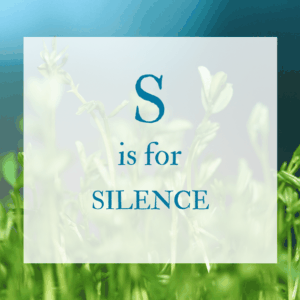 Retreats and Silence go hand-in-hand.
Retreats and Silence go hand-in-hand.
Retreats create the space for Spiritual Growth, and SILENCE is the language of Retreat. I know that seems odd; silence as language, but silence is the language of God.
Regular periods of silence play a significant role in Spiritual Growth. The type of silence I am speaking about is not the mere muting of the noise around us. No, it is an inner condition of our very beings; stillness, quiet, calm. There are also elements of desire and anticipation in this type of silence.
God has promised to be found by those who seek Him, but once we’ve found Him, often we begin to fill the space between us with our desires and demands. To hear God, we must listen for the “sound of a gentle breeze.”
Can one move long the journey in faith without silence? I suppose, but if you want to GROW spiritually, you must submit yourself to silence.
As an extrovert, silence has not come easy to me. I wrote about my initial experience with silence, in D is for DISCERNEMENT. But, once I tasted the fullness of emptying myself in order to be attentive to God, I could not go back to the way things were. In this silence, my Spiritual Growth expanded in ways I never could have anticipated.
After my husband died, I submitted myself to a ten-day retreat of silence and solitude. At the Siena Prayer Center I met with a Spiritual Director for 1 hour each day, and we discussed what God was revealing to me. It would have been very easy to stay home, and keep busy with all the things that I needed to take care of in the wake of this tragedy. But the time alone with God was so very rich and full of the comfort and clarity I needed at that critical time.
I know not everyone has the luxury of retreating for ten days, but you must begin – somehow, somewhere. A suggested mode for incorporating silence into your journey of faith is:
1 hour per week, 1 day per month, and 1 week per year.
This silence business is nothing new, and there are tools to help you enter this silence. Drop me an email if you’re interested in learning about them.
A word for Introverts: the silence that is needed here is not your regular experience of inner quiet. You must be attentive to something outside yourself. You must go deeper, or go sideways. The external quiet may come easy to you, but there must exist in it, longing and anticipation.
A word for Extroverts: at the onset, silence may be difficult for you, but you must push through what feels like loneliness. Do not be afraid. Create the space, and be still. God will speak to you, you are not alone.
Regardless of your temperament, observing silence does get easier with practice. And I can PROMISE, you will never regret seeking God in silence.